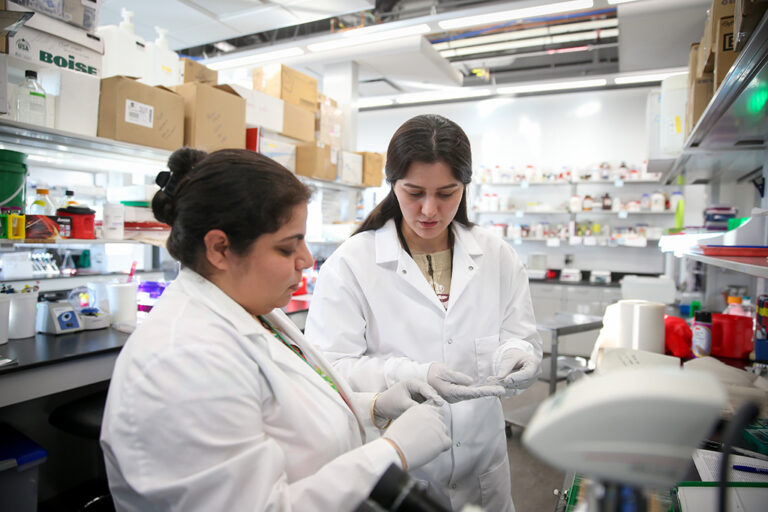UND School of Medicine & Health Sciences to confer 74 doctor of medicine degrees on new physicians
 The UND School of Medicine & Health Sciences (SMHS) will confer the Doctor of Medicine (M.D.) degree to 74 graduating medical students in a virtual Commencement Ceremony at 10 a.m. on Saturday, May 16.
The UND School of Medicine & Health Sciences (SMHS) will confer the Doctor of Medicine (M.D.) degree to 74 graduating medical students in a virtual Commencement Ceremony at 10 a.m. on Saturday, May 16.
Joshua Wynne, M.D., M.B.A., M.P.H., UND interim president, vice president for Health Affairs and dean of the SMHS, will preside over this 45th M.D. graduation ceremony
The graduating students have completed four years of medical education to earn their M.D. degree, beginning with two years of instruction on the UND campus in Grand Forks followed by two years of training with practicing physicians who volunteer to serve as their teachers in hospitals and clinics throughout North Dakota.
The ceremony’s keynote address, “An educator to his students: thank you for one last chance to teach you,” will be delivered by Walter Kemp, M.D., Ph.D., an associate professor in the SMHS Department of Pathology.
Born and raised in Libby, Mont., Dr. Kemp, a Creighton University School of Medicine graduate, pursued anatomic and clinical pathology residency training and a forensic pathology fellowship at the University of Texas Southwestern (UTSW) Medical Center in Dallas, Texas. After completing fellowship training, he was an assistant professor of Pathology at UTSW before he returned to Montana to become the deputy state medical examiner, a position he held for 10 years. While working in Montana, Dr. Kemp obtained his Ph.D. in Anthropology from the University of Montana in Missoula. In July 2015, he took a position as associate professor in the Department of Pathology at the UND SMHS.
Following graduation, most members of the M.D. Class of 2020 will begin residency, a three- to seven-year period of advanced intensive training in their chosen medical specialties before beginning independent practice.
In keeping with tradition, 55 percent of the class matched into primary care specialties, with 14 of 72 matching students (19.4 percent) set to enter family medicine, a figure more than double the national average of students matching into family medicine. Other specialties chosen by this year’s class include anesthesiology, diagnostic radiology, genetics, neurology, emergency medicine, pathology, psychiatry, surgery, urology, obstetrics/gynecology, and otolaryngology.
“This year’s graduating class has the challenging task of entering the workforce in the middle of the worst global pandemic in a century, which also happens to be occurring during a national shortage of health providers,” said Dr. Wynne. “That of course makes these students’ graduation all the more important. We wish them well.”
View a complete list of the graduates’ residency programs here.


